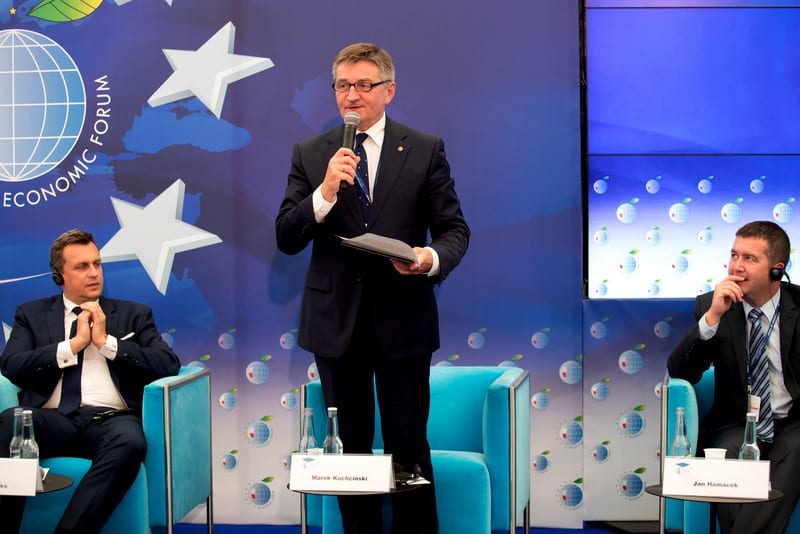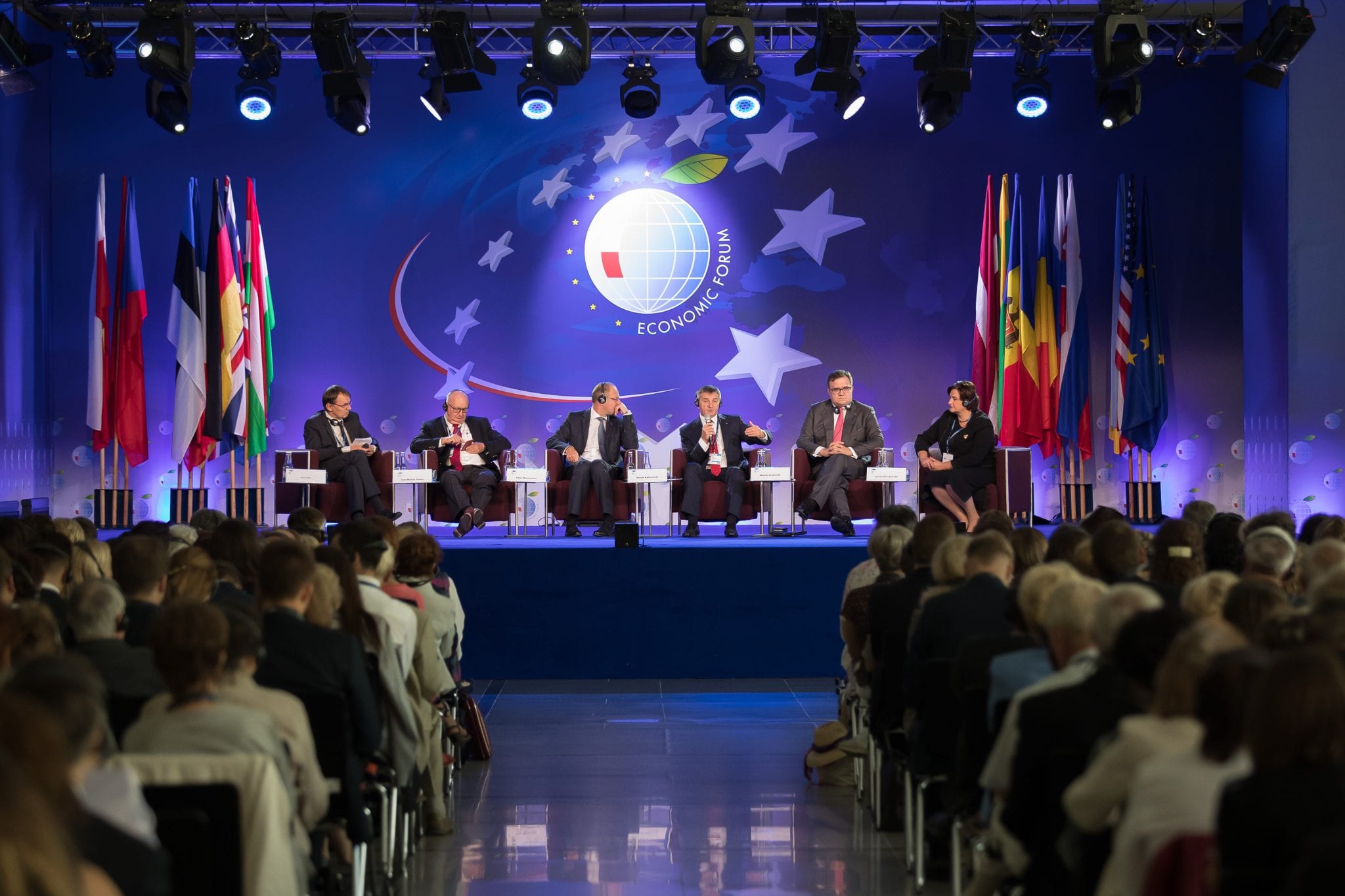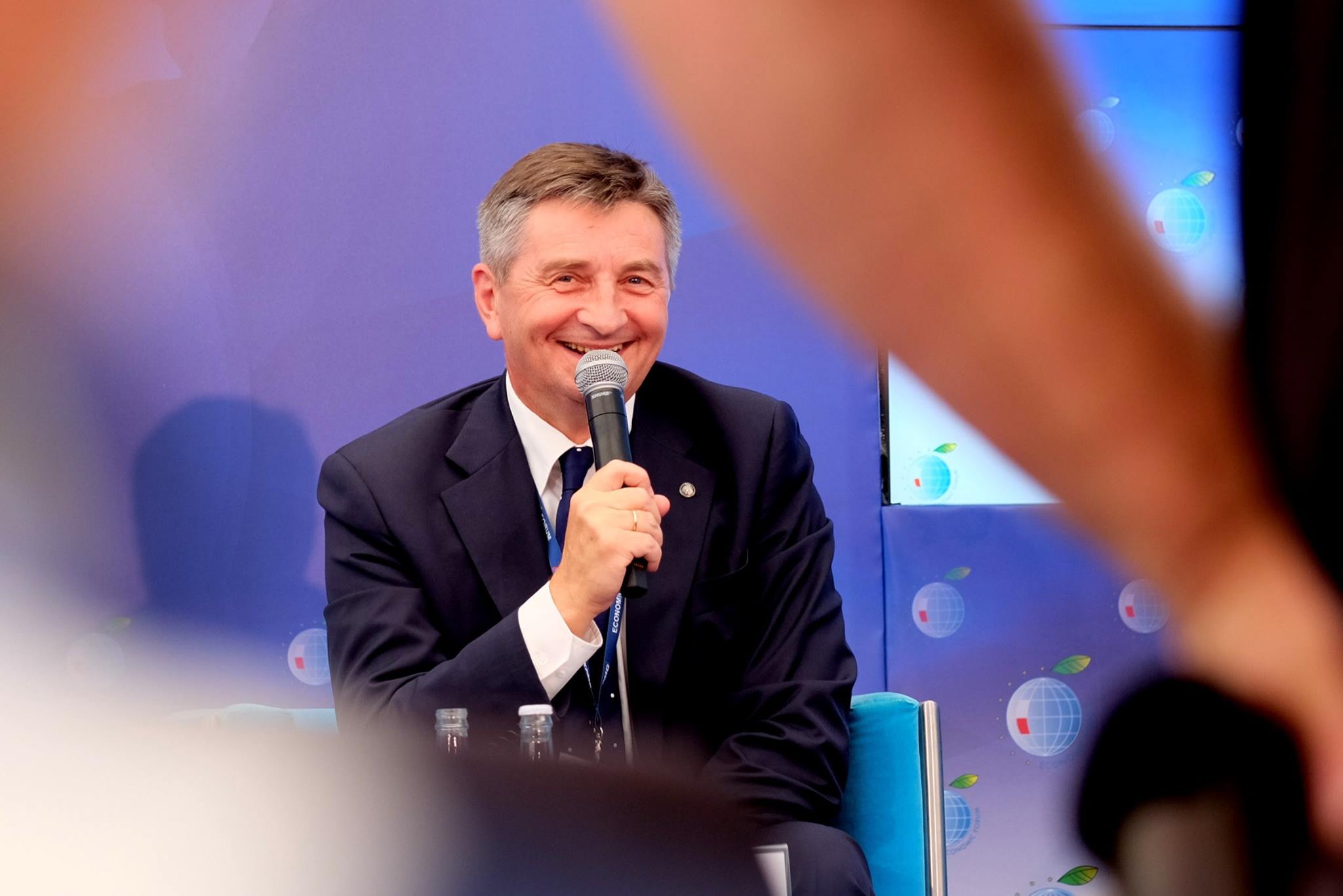In the mountains, one feels no boundaries. In the mountains one seeks freedom. In the mountains there is of course rivalry, but it is about the goal, not about the opponent. This goal for man is primarily the search for harmony, balance and a dignified life in our rather complicated geopolitical space of Central Europe. Thus, if man naturally strives for sustainable development, seeking a balance between economics and ecology that would inspire creative action - he strengthens his ability to think in terms of many generations. And whole communities, "preserving" the heritage of their ancestors, build a sense of national consciousness based on the ethical dimension rather than on economic growth or satisfaction of basic needs. Such an attitude is closely related to the concern for preservation of multiculturalism and biodiversity of the Carpathians, clean air or the most strategic resource, which in the future will be drinking water. Demolition/destruction is easy and quick, construction is slow and requires cooperation. It is precisely in terms of the future of generations that each of us should be oriented towards cooperation with other people. We need time and space to build mutual trust. As equals with equals and free with free.
The idea of 'Europe of the Carpathians' draws on just such thinking. It draws on the potential of this unique space, stretching over a thousand kilometers long arc touching the foothills of the Alps in eastern Austria and the Balkans in the southern part of Europe. It is an arc which for centuries has enabled nations and states, at times forming great powers, to cooperate. It is also the hometown of many extraordinary people who have had a tremendous impact on the shape of our civilization, such as Henri Coandă from Bucharest or Sergey Korolov from Zhytomyr, whose jet ships have overcome the limits of sound and earthly gravity; Ignacy Lukasiewicz from the Podkarpacie region or Jan Szczepanik from Mościskie, known as the Polish Edison - pioneers of the oil industry and photography, respectively: pioneers of the oil industry and color photography, weaving and television; like Nikola Tesla, the brilliant Croatian Serb - the man who tamed electricity by constructing an electric motor and a solar battery; like Otto Wichterle, the Czech chemist from Prostějov, without whose plastics it would be difficult to imagine today's clothing; or Albert Szent-Györgyi from Budapest, the discoverer of vitamins C and P.
We wouldn't have the famous Rubik's Cube if it hadn't been invented by Hungarian architect Rubik Ernő, and we wouldn't have the Pulitzer Prize if it hadn't been established in the USA by Hungarian Joseph Pulitzer. We would not have a typewriter for the blind if Kempelen Farkas of Bratislava had not created it. And we still have the creators: Bartók, Liszt, Chopin, Dvořák, Kodály, Malevich, Milosz, Warhol, Brâncuşi, Celan, and many others. We have heroes such as Jozef Bem, Jòzsef Antall and Henryk Sławik, and martyrs such as Ryszard Siwiec, Jan Palach, Sándor Bauer or the last political prisoner of the Gulag, Vasyl Stus, for whom human freedom was the greatest value. Above all, John Paul II came from the Carpathians.
The conference "Europe of the Carpathians" has for years been a place to meet and discuss people who want to talk freely both about preserving the unique wealth of culture, nature and ways of farming, and about working on further initiatives serving the development of the countries of our region in the world of global competition, about the Tri-Cities initiative; about NATO and security; The European Union in the context of the problems, challenges and opportunities that it currently faces in many areas of its activity; axiological issues of our civilization; strategies and economic development; new perspectives for scientific cooperation of the Carpathian countries - these are just some of the topics discussed at our conferences. I invite you to join us and wish you fruitful discussions and deliberations.
/-/ Marek Kuchciński
Conference "Europe of the Carpathians", Krynica-Zdroj, September 2016.
The idea of "Carpathian Europe" dates back to 2007, when there was the first meeting of the parliamentarians of the Carpathian countries, initiated by Marek Kuchciński, the chairman of the Parliamentary Commission for Environmental Protection, Natural Resources and Forestry at that time. As every year, the guests and panelists will include representatives of national parliaments and government administration, scientists, experts, analysts and local government officials from the countries of Central and Eastern Europe.
Framework programme of the conference "Carpathian Europe"
during the 27th Economic Forum
Krynica-Zdrój, September 5-7, 2017.
Carpathian Hall
September 5 (Tuesday)
16:00 - 16:30 Inauguration of the "Carpathian Europe" Conference
16:30 - 17:30 I panel: Tri-Cities - cooperation of 12 countries in the region
September 6 (Wednesday)
10:40 - 11:55 II panel: How to fix the EU?
12:05 - 13:05 Third panel: Development policy of European regions
13:15 - 14:15 Panel IV: The euro - benefits and costs
14:25 - 15:25 Panel V: Solidarity beyond borders: the European Neighbourhood Policy and the immigration crisis
15:35 - 16:35 Panel VI: Security in Europe on the Eastern European Borderline between EU and NATO
16:40 - 17:00 Presentation of Lithuania's plan on Ukraine for 2017-2020
September 7 (Thursday)
10:40 - 11:55 Panel VII: Will Central and Eastern Europe defend Western civilization?
12:05 - 13:05 Panel VIII: Intellectual Faces of Central and Eastern Europe
13:15 - 14:15 Panel IX: Scientific cooperation of Carpathian countries
14:25 - 15:00 Presentation: Polish-Ukrainian Mountain Rescue Service





